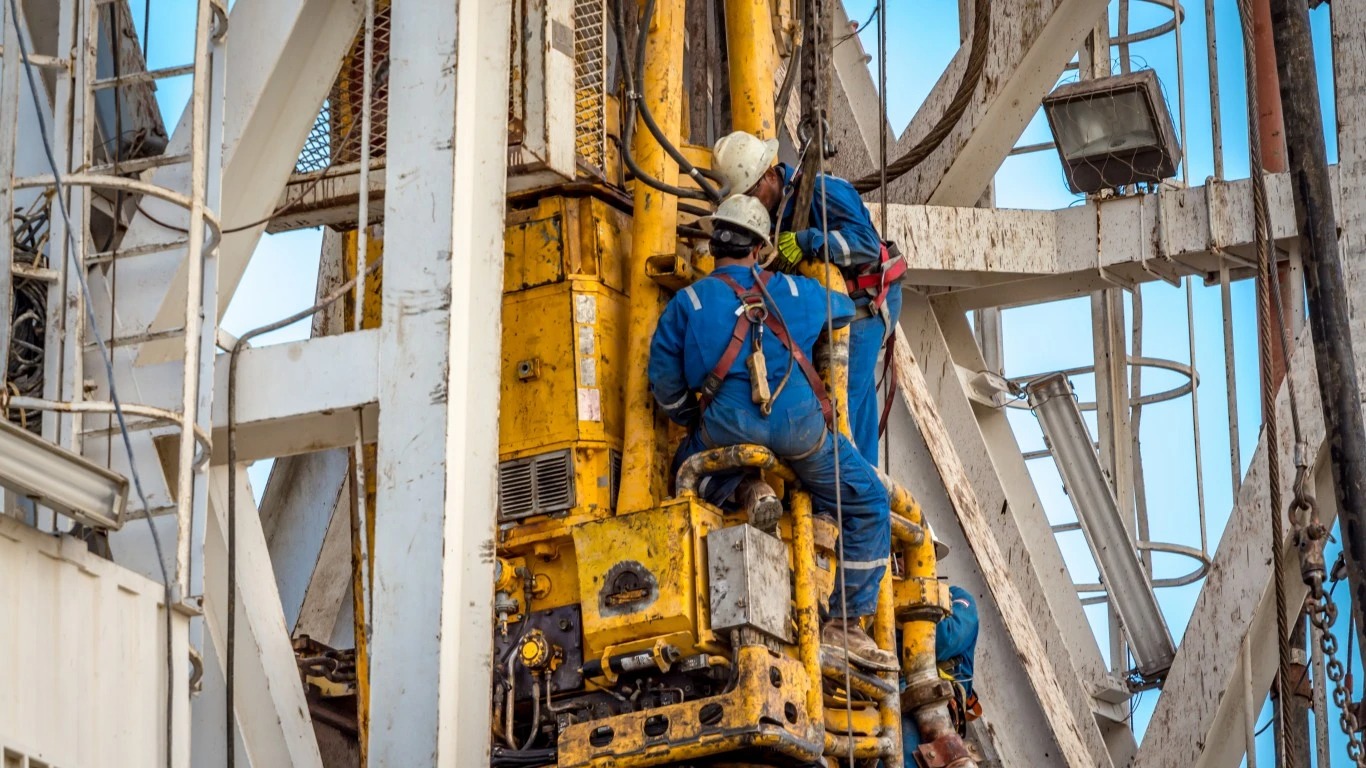
The farther 2022 gets in the rearview mirror for most investors the better, as it was the worst year for stocks since the 2008 to 2009 period. Two sectors out of the 11 Global Industry Classification Standard (GICs) were positive. Energy blew away the competition, and utilities barely eked out a 1.6% gain for the year. The big question for investors is, after two stellar years, can energy lead the way again in 2023?
The energy team at Goldman Sachs is optimistic again this year, especially after the backup in crude pricing since last summer. While the massive returns from the past two years are unlikely, the positive setup for 2023 is in place. The firm noted this in its report covering the sector:
While Energy outperformed the S&P by 78% in 2022, and we see a repeat of that magnitude as unlikely, we do believe the backdrop is still constructive and remain bullish on Energy equities. We see Brent in a multi-year $80-$100 per barrel range (above the forward curve), the equities “sweet spot” and see company-specific drivers around capital returns, project developments and execution to drive healthy upside/downside dispersion. Our bottom-up price targets imply 13% market cap weighted total return to Energy coverage, with 26% average total return to Buyated stocks.
Most investors would gladly take 26% total return. So we screened the Goldman Sachs Buyated energy stocks, looking for companies that pay big and dependable dividends and that have stocks with the highest total return potential. Total return is the increase in the price of a stock plus dividends paid in a given year. While all seven of the following stocks are rated Buy, it is important to remember that no single analyst report should be used as a sole basis for any buying or selling decision.
Canadian Natural Resources
This north-of-the-border energy giant offers a big dividend and growth potential. Canadian Natural Resources Ltd. (NYSE: CNQ) acquires, explores for, develops, produces, markets and sells crude oil, natural gas and natural gas liquids (NGLs). It operates primarily in western Canada, the United Kingdom portion of the North Sea and offshore Africa.
The company offers synthetic crude oil, light and medium crude oil, bitumen (thermal oil), primary heavy crude oil and Pelican Lake heavy crude oil. Its midstream and refining assets include two crude oil pipeline systems and a 50% working interest in an 84-megawatt cogeneration plant at Primrose.
As of December 31, 2020, the company had total proved crude oil, bitumen, and NGLs reserves were 10,528 million barrels (MMbbl); total proved plus probable crude oil, bitumen and NGLs reserves were 13,271 MMbbl; proved SCO reserves were 6,998 MMbbl; total proved plus probable SCO reserves were 7,535 MMbbl; proved natural gas reserves were 12,168 billion cubic feet (Bcf); and total proved plus probable natural gas reserves were 20,249 Bcf.
Canadian Natural Resources stock investors receive a 4.62% dividend. The Goldman Sachs price target is $64, while the consensus target is $67.13. The stock closed almost 5% higher on Friday at $54.53.
Sponsored: Find a Qualified Financial Advisor
Finding a qualified financial advisor doesn’t have to be hard. SmartAsset’s free tool matches you with up to 3 fiduciary financial advisors in your area in 5 minutes. Each advisor has been vetted by SmartAsset and is held to a fiduciary standard to act in your best interests. If you’re ready to be matched with local advisors that can help you achieve your financial goals, get started now.






